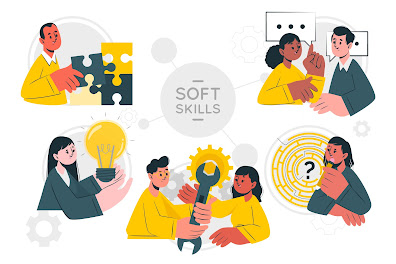Enhancing Vocational Education: Strategies for Continuous Improvement in L3 CAVA
Introduction
In the realm of vocational education, assessment plays a pivotal role in ensuring that learners acquire the necessary skills and knowledge to excel in their chosen fields. However, assessment isn't just about evaluating performance—it's also about promoting continuous improvement and fostering professional development among assessors. In this blog, we'll explore strategies for assessors to promote continuous improvement in vocational education and assessment, emphasizing the importance of feedback, reflection, and ongoing professional development in ensuring the validity of qualifications like the Level 3 Certificate in Assessing Vocational Achievement.
The Importance of Feedback:
Feedback serves as a cornerstone of effective assessment practices in vocational education. As assessors provide feedback to learners, they not only highlight areas of strength and areas for improvement but also empower learners to take ownership of their learning journey. Feedback should be timely, specific, and constructive, focusing on actionable steps that learners can take to enhance their performance. By incorporating feedback into their assessment practices, assessors encourage continuous improvement and support learners in reaching their full potential.
Promoting Reflection:
Reflection is a powerful tool for assessors to enhance their practice and promote continuous improvement. By taking the time to reflect on their assessment processes and outcomes, assessors can identify what worked well and areas where they can make improvements. This reflective practice allows assessors to refine their assessment strategies, adapt to the diverse needs of learners, and ensure that assessments are fair, valid, and reliable. Additionally, reflection fosters a culture of continuous learning and improvement among assessors, contributing to the overall quality of vocational education.
Investing in Professional Development:
Professional development is essential for assessors to stay abreast of best practices in assessment and vocational education. Through ongoing training, workshops, and networking opportunities, assessors can expand their knowledge base, enhance their skills, and stay informed about emerging trends and developments in the field. Professional development also provides assessors with the opportunity to collaborate with colleagues, share insights and experiences, and learn from each other's successes and challenges. By investing in professional development, assessors demonstrate their commitment to excellence and ensure the validity and credibility of qualifications like the Level 3 Certificate in Assessing Vocational Achievement.
Utilizing Peer Review and Collaboration:
Peer review and collaboration are valuable strategies for assessors to promote continuous improvement in their assessment practices. By engaging in peer review processes, assessors can receive feedback and insights from colleagues, gain new perspectives, and identify areas for growth. Collaborative assessment practices also foster a sense of community among assessors, enabling them to share resources, collaborate on assessment design, and support each other in delivering high-quality assessments. Through peer review and collaboration, assessors can strengthen their assessment practices, enhance the validity of qualifications, and contribute to the overall improvement of vocational education.
Embracing Technology:
Technology offers innovative opportunities for assessors to enhance their assessment practices and promote continuous improvement. Assessment platforms and tools can streamline assessment processes, provide real-time feedback to learners, and facilitate data-driven decision-making. Additionally, technology enables assessors to create interactive and engaging assessments that simulate real-world scenarios, allowing learners to demonstrate their skills and knowledge in authentic contexts. By embracing technology, assessors can enhance the efficiency, effectiveness, and validity of assessments, ultimately enriching the learning experience for learners pursuing qualifications like the Level 3 Certificate in Assessing Vocational Achievement.
Conclusion
In conclusion, continuous improvement is essential for assessors to ensure the validity and credibility of vocational qualifications like the Level 3 Certificate in Assessing Vocational Achievement. By embracing strategies such as feedback, reflection, professional development, peer review, collaboration, and technology, assessors can enhance their assessment practices, support learners in achieving their goals, and contribute to the overall quality of vocational education. Through a commitment to continuous improvement, assessors play a vital role in shaping the future of vocational education and empowering learners to succeed in their chosen fields.

.jpg)


Comments
Post a Comment